Iran Says Cutting Russia From UN Human Rights Council A Political Move
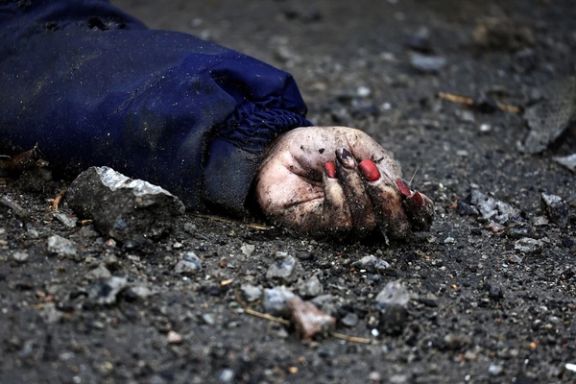
Iran voted against the resolution move to suspend Russia from the UN Human Rights Council (UNHRC), calling it “politically motivated”.

Iran voted against the resolution move to suspend Russia from the UN Human Rights Council (UNHRC), calling it “politically motivated”.
Speaking at the UN General Assembly meeting on Thursday, the Islamic Republic’s envoy to the world body Majid Takht-Ravanchi said that in Iran’s opinion, the text of the draft resolution was based on political motivations, which can harm UN’s impartiality.
UN General Assembly voted to suspend Moscow over “gross and systematic violations and abuses of human rights” by Russian troops in the invasion of Ukraine.
Iran, China, Cuba, and Syria were among 24 countries opposing the resolution. Among 54 abstentions were Egypt, India, Iraq, Jordan, Kuwait, Qatar, Saudi Arabia, Singapore, South Africa, and the United Arab Emirates. Israel and Turkey both voted for the resolution.
Takht-Ravanchi emphasized that the UNHRC’s work must be done in a nonpolitical and non-confrontational manner and membership at the council should not be politicized.
However, he expressed Iran’s deep concerns about the dire humanitarian situation in Ukraine, adding that the Islamic Republic believes in protecting sovereignty and territorial integrity of all countries.
In early March, Iran abstained in a UN General Assembly resolution deploring the Russian invasion of Ukraine. The only previous example of a country being suspended from the UNHRC was Libya in 2011, after a crackdown by the government of Muammar Gaddafi against protests during the ‘Arab Spring.’
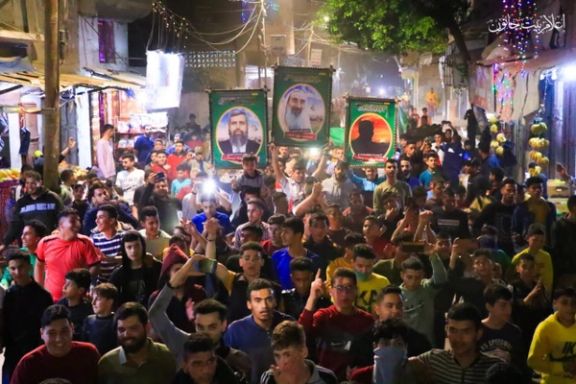
Supporters of Iran-backed Lebanese Hezbollah and Palestinian militant group Hamas held street parties celebrating the terrorist attack in downtown Tel Aviv.
Social media platforms were full of photos and videos of Palestinians cheering and distributing sweets following the attack that killed two and injured several Israelis.
Hezbollah supporters in southern Lebanon and Palestinians in Ramallah in West Bank stopped cars and gave them sweets, while people in Jenin gathered at one of the city’s square to celebrate.
In Beit Hanoun people held rallies to express support for the attack, with participants carrying posters of Hamas founder Ahmed Yassin, Salah Shehadeh -- a former leader of Izz ad-Din al-Qassam Brigades that is the military wing of Hamas – and Muhammed Deif, a commander of the brigades who has been Israel's 'most wanted' man for the last 26 years.
Hailing the attack, Mushir al-Masri, a senior official of the Iran-funded Hamas, told Al-Jazeera television that “Resistance operations are a natural response to Israel’s crimes against the Palestinian people”.
Describing the attack as “a heroic operation”, Hezbollah said in a statement that “the Palestinian resistance proved its power to confront the occupying regime” and that the series of “successful operations” indicate the Palestinians’ decision to continue fighting.
Iranian media affiliated with the Revolutionary Guard (IRGC) covered the story highlighting the “martyrdom” of the attacker, identified as 28-year-old Ra’ad Fathi Hazem from the Jenin refugee camp.
The shooting attack in the Dizengoff street is the latest in a wave that has claimed the lives of 13 people so far.

US investigators are reportedly looking into whether two suspects arrested for impersonating federal agents could have been Iranian intelligence infiltrators.
Law enforcement sources told CBS News on Thursday that investigators were looking into the possible ties of two men arrested by the Federal Bureau of Investigation (FBI) in Washington, DC, on Wednesday to Iranian intelligence including to the Revolutionary Guards (IRGC) and its extraterritorial arm, the Qods (Quds) force.
Arian Taherzadeh and Haider Ali had since February 2020, soon after the US targeted killing of Iran's Qods Force Commander Ghasem Soleimani in Iraq, posed as officers and employees of the US government, including members of federal law enforcement agencies.
According to US prosecutors, Ali, 36, had told witnesses that he had connections to the Pakistani intelligence service and his passport contained Pakistani visas as well as two Iranian visas from 2019 and January 2020. He appears to have travelled to Iran on one of the visas, prosecutors said without specifying the date.
The second suspect, Ali Taherzadeh, 40, has an Iranian name but is apparently a US citizen now. Some media have claimed that Taherzadeh who previously lived in Missouri, was in hundreds of thousands of dollars in debt, repeatedly finding himself on the run from creditors.

The conspiracy began in February 2020, according to the Washington Post. This coincides with the killing of Iranian Revolutionary Guard general Qasem Soleimani in a US airstrike in Baghdad in January 2020 for which Iranian officials have repeatedly vowed revenge. Five days after the killing, Iran fired more than a dozen ballistic missiles at military bases in Iraq hosting US troops, but officials often say that was not the end of Iran's revenge.
The US has arrested or charged others on suspicion of ties with Iranian intelligence on several previous occasions including July 2021 when four members of an alleged Iranian spy network were charged with plotting to kidnap an Iranian-American journalist based in New York.
Iran's threats against US officials for Soleimani's killing is apparently one of the biggest hurdles in Vienna nuclear talks. Washington wants such threats to stop if Tehran wants the IRGC to be removed from the list of Foreign Terrorist Organizations (FTO).
Iran’s Supreme Leader Ali Khamenei vowed revenge for Soleimani in a speech on January 1, saying Trump and others like him would be "forgotten and lost in the dustbin of history" but only "after paying for their crimes in the world”.
In a televised speech two days later, President Ebrahim Raisi said that "Muslims" would take revenge" if Trump and former Secretary of State Mike Pompeo were not "tried in a fair court for the criminal act of assassinating Soleimani."
At the time of Soleimani's killing, Raisi, then Chief Justice, threatened Trump that he would not be "immune to the enforcement of law and justice" and said none of those responsible would be "safe anywhere on the globe."
On January 6, 2021 the commander of Iran's Qods (Quds) Force Esmail Ghaani was quoted by Iranian media as saying that "revenge [for Soleimani] has started from day one and you will not have peace even in your own homes...and it cannot be ruled out that we take revenge in your own home."
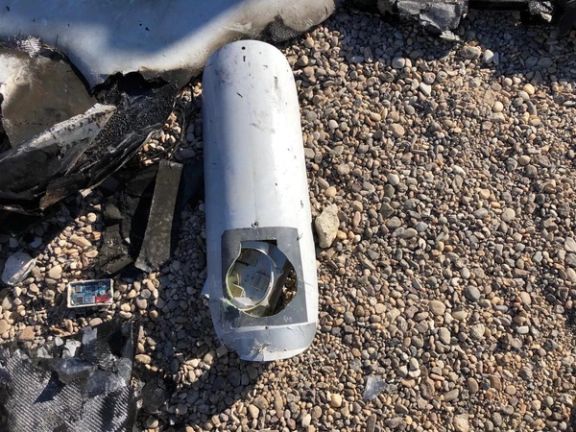
United States forces say they have shot down a drone hovering near Ain al-Asad air base, which hosts American troops, in the Iraqi province of al-Anbar.
A statement from the US Combined Joint Task Force said forces inside the base brought down the armed unmanned aerial vehicle entering the base with counter-rocket, artillery systems early on Friday at 1.46 am local time, 22.46 GMT.
Russia Today Arabic Channel reported that one drone had hit the base and another was brought down near it. The Arabic-language al-Sumaria television network claims that two combat drones hit targets inside the airbase. Nobody has claimed responsibility. The US statement said there were no injuries or damage.
Ain al-Asad has been a major hub for the US military presence since the 2003 invasion and has been a frequent target for Shiite ‘resistance’ groups backed by Tehran. In 2020 it was hit by ballistic missiles fired from Iran in response to the US killing Iranian general Qasem Soleimani and Iraqi militia leader Abu Mahdi al-Muhandis in a drone strike in Baghdad.
On Thursday, four US troops were injured after rockets hit a base housing American troops at ‘Green Village,’ Deir al-Zor province, Syria. Initial reports had said two soldiers were injured. The US 900-strong military presence in northeast Syria is aimed at preventing a resurgence of the Islamic State group by supporting its Kurdish and other allies.
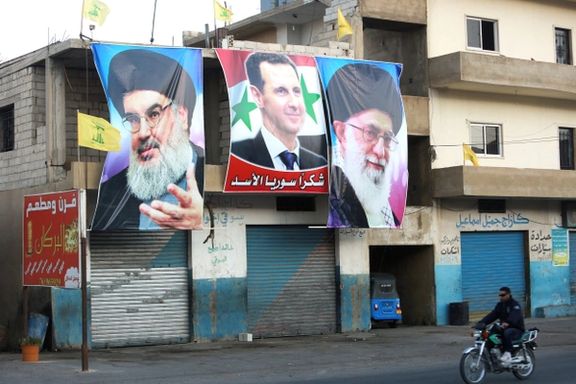
Along with a ceasefire in Yemen, Saudi Arabia, Kuwait and Yemen announced the return of their envoys to Lebanon as a sign of tension reduction among Arab states.
Last year, Saudi Arabia and its allies withdrew their envoys from Lebanon over what essentially has been the Iranian-backed Hezbollah’s influence in the country and criticism by pro-Hezbollah politicians of the Saudi role in Yemen’s conflict.
It is not clear if the Saudi decision means economic support for the beleaguered Lebanese economy that has gone into a tailspin since mid-2019. Saudi Arabia and its wealthy oil-producing allies were traditionally assisting Lebanon with economic aid.
The Saudi foreign ministry said its ambassador returned in response to calls by "moderate" Lebanese political forces and after remarks by Prime Minister Najib Mikati regarding "ending all political, military and security activities" that affect Saudi Arabia and other Persian Gulf states.
The Saudi statement on state news agency SPA stressed the importance of Lebanon "returning to its Arab depth".
Kuwait's foreign ministry issued a similar statement. Mikati's office said Kuwait's envoy would return before the end of the week.
Mikati, in a Twitter post welcoming the move, said Lebanon was "proud of its Arab affiliation and upholds the best relations with Gulf states", describing them as pillars of support.
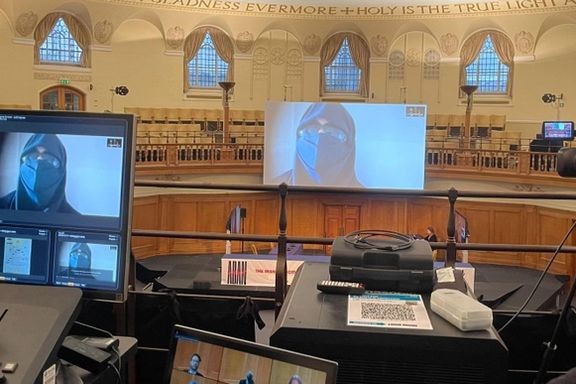
Fifteen human rights groups have urged international organizations to take action to stop Iran's persecution of witnesses testifying against its violations.
In a statement released on April 7, the fifteen rights organizations which include Amnesty International, Frontline Defenders, and Together Against the Death Penalty (EPCM) urged international bodies, such as the United Nations, to take action to stop Iran's harassment and persecution of witnesses and their families who testified at the Iran Atrocities (Aban) Tribunal last year.
The Tribunal's hearings were held in London in November 2021 and February 2022 and heard evidence from 55 witnesses including protesters, torture survivors, healthcare workers, and former security and judicial officials, as well as relatives of protesters and bystanders who were shot dead during the November 2019 protests.
The signatories of the statement said Iran’s intelligence ministry and other security forces have subjected at least six Tribunal witnesses and/or their families to a litany of abuses since shortly after the first set of public hearings.
These abuses, they said, included arbitrary arrest and detention, prosecution on vaguely worded national security related charges, threatening telephone calls, summoning for coercive interrogations, and raids on their homes and places of work. Such abuses have intensified following the second set of hearings in February, the rights organizations said.
Since November 2021, at least six witnesses and their families have been subjected to arbitrary arrest and detention, violence, unjust prosecution, summoning for coercive interrogations, death threats, and other forms of harassment, the rights organizations said in their statement.
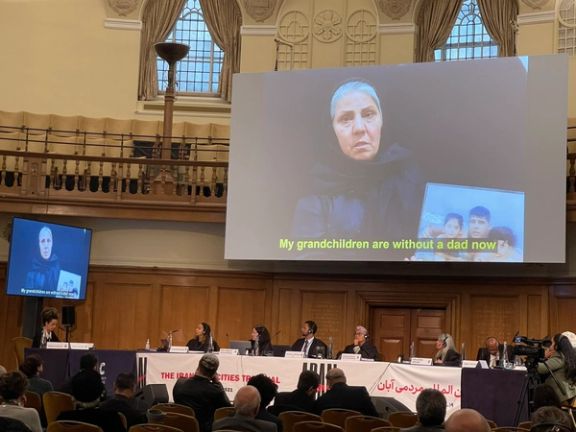
Some families have also agreed to give false video statements under duress by security forces for fear of their families’ safety. "These violations constitute a form of torture, or other cruel, inhuman or degrading treatment,” the signatories of the statement said.
One of the victims is Amin Ansarifar, whose son Farzad Ansarifar was killed by security forces on November 16, 2019 in Behbahan. Ansarifar and his family have been subjected to harassment since he testified at the hearings at the tribunal in November.
Amin Ansarifar was arrested on February 19, 2022 for “spreading propaganda against the system”, the family's house was raided, and Arman Ansarifar, the family's other son, was arrested. The father and son were subsequently sentenced to three months in prison and a five-year ban on travelling abroad.
The authorities also accused Farzaneh Ansarifar, Ansarifar's daughter, of spearheading her father’s participation at the Tribunal. She has now been sentenced to four years and six months in prison for her Instagram posts regarding her brother's death.
The parents of Aram Madoukhi who fled Iran after taking part in the November 2019 protests in Sanandaj, Kurdistan province, have also faced relentless harassment and intimidation by the intelligence ministry since he testified at the tribunal.
Intelligence agents told the family that their son was still "within the grasp of the Iranian authorities" even outside the country and could face the fate of dissident journalist Rouhollah Zam, who was abducted by Iran’s Revolutionary Guards during a visit to Iraq in 2019 and was executed later.
In an apparent attempt to call into question the validity of his testimony and the legitimacy of the overall proceedings, the Mardoukhi family were pressured to consent to video-taped "interviews" in which they were instructed to say that their son had lied during his testimony and had been paid to testify before the Tribunal. Intelligence agent eventually managed to extract such false statements from Habibollah Mardoukhi, Aram's father.